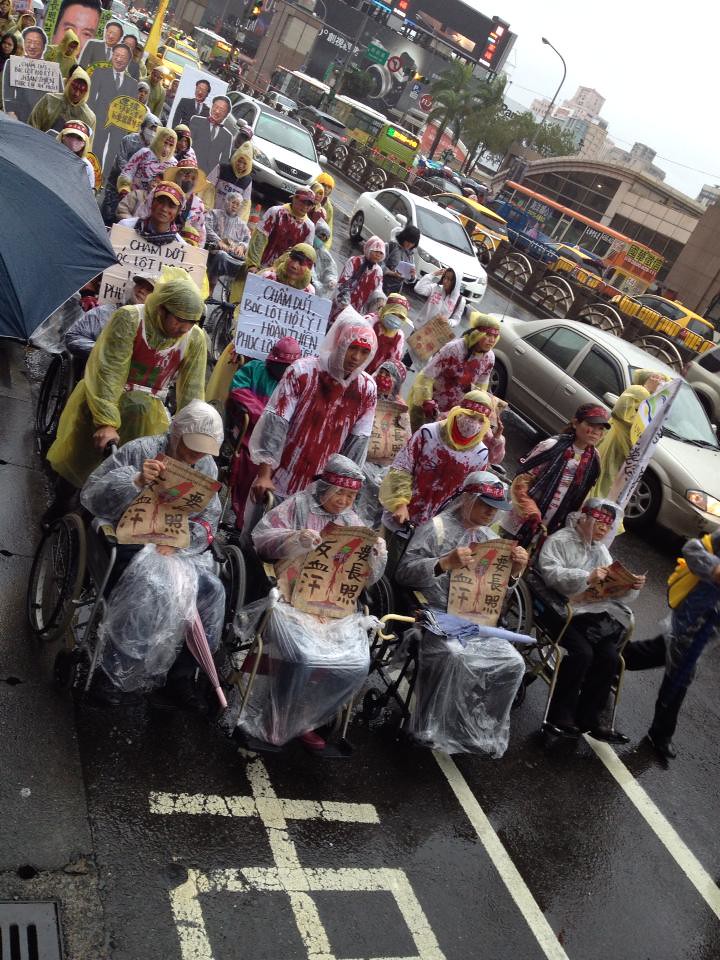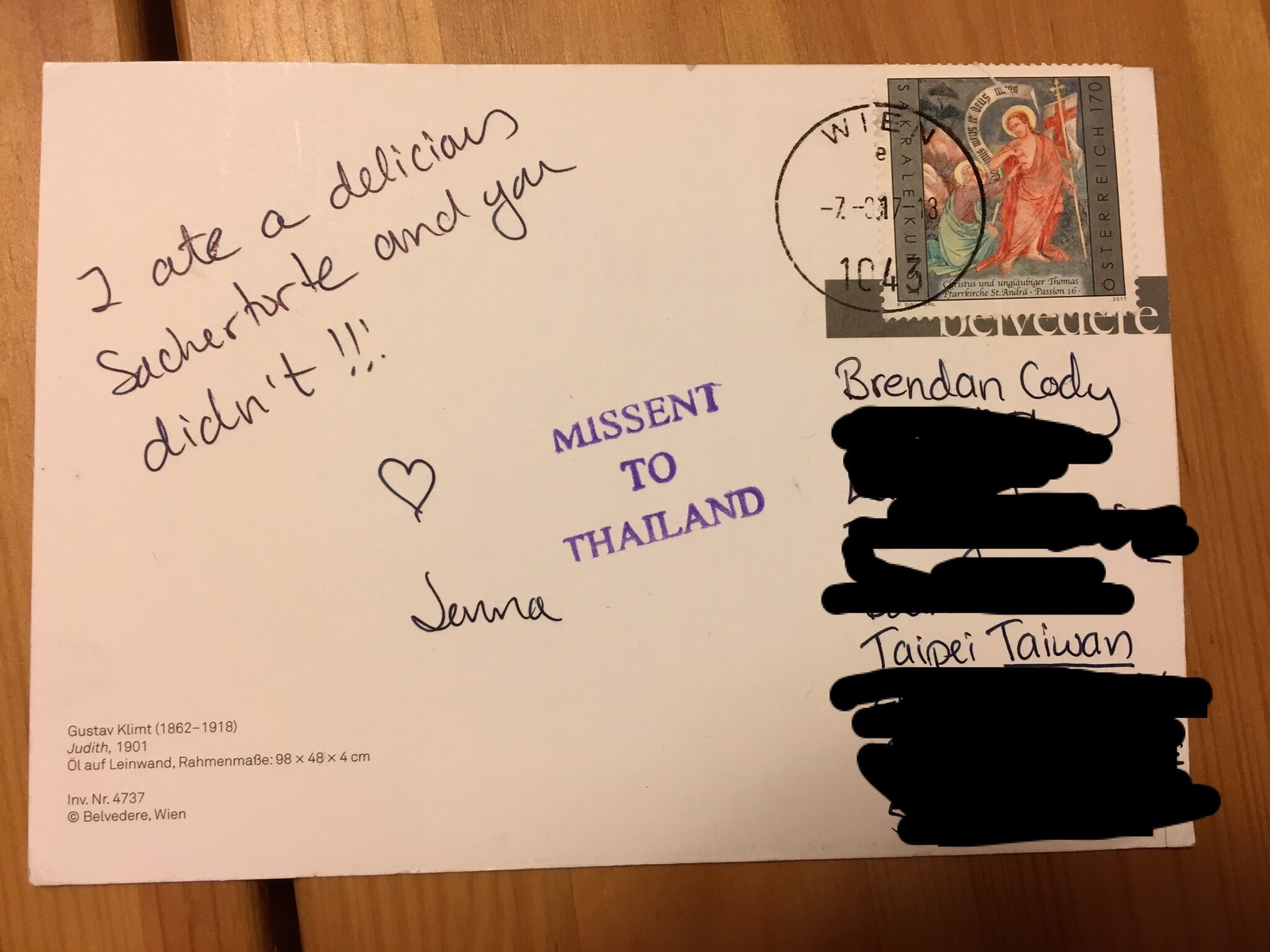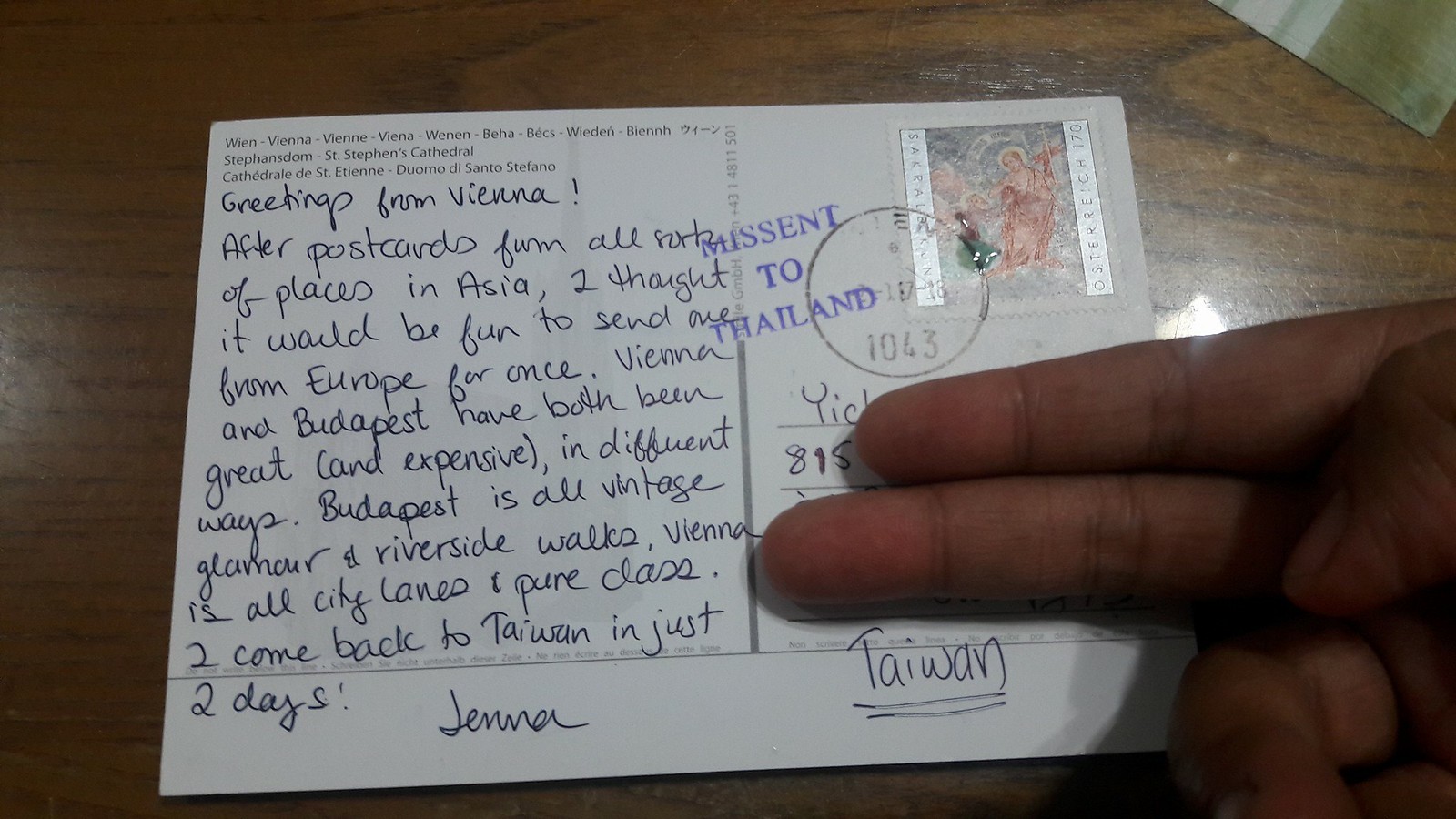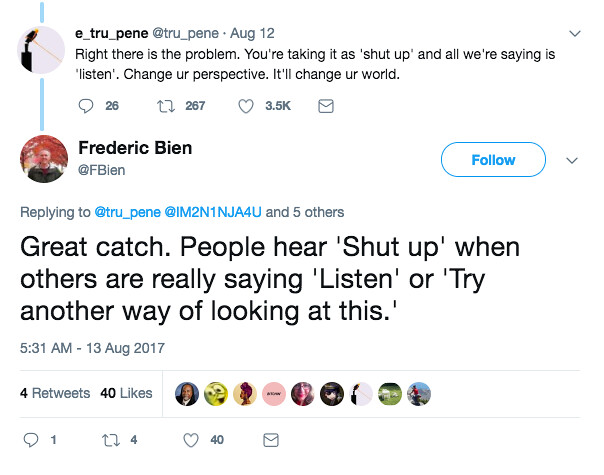 |
| From a foreign labor rights protest I attended before the Tsai administration took power |
I want to start this post with a little story. Every Saturday morning I tutor one of two intelligent, thoughtful young women - sisters. Which one I teach changes periodically. They used to have a domestic worker from Indonesia, whom the whole family liked (she eventually returned). She would cook Indonesian dishes for them to try, bring them gifts from her visits home, and was generally a part of the family. I liked her a lot, too. The girls called her Auntie. They call me Jenna.
She seemed older. Her face was lightly lined, a few silver wires in her hair. I guessed that she was in her forties, both by her appearance and attitude.
One day, while the helper was in the next room, one of the girls let slip that she thought I was in my twenties. I laughed and encouraged them to guess my real age. We were sitting in the living room, and they guessed and guessed but just would not make it up to my actual age. It's not their fault: I really didn't look it. No wrinkles, no visible gray hairs, a youthful personality.
I finally spilled: I was 33.
They were both silent.
"33?" one of them finally said. "But that's Auntie's age!"
"It is?"
They called her over in Chinese and asked her age.
"33," she answered simply.
"Oh," I replied in Chinese.
"...I'm 33, too."
But the truth thumped gracelessly in the pause.
She smiled sadly. I don't know what my face did. The girls were merely surprised, and I can only think that someday in the future they will reflect on that moment.
* * *
I often hear that a sense of Hoklo nationalism (think "Taiwan for the Taiwanese") and anti-foreigner sentiment once marred past pro-Taiwan movements. And I've seen it: more than once, I've watched Southeast Asian laborers march in demonstrations demanding better worker protections, only to be ignored by the government and the Taiwanese population. I've watched demonstration, mostly by older people, holding signs saying things like "foreign workers (外勞) go home." I was worried they meant me, but was told (by way of "reassurance") that I was welcome, it was foreign blue collar (mostly Southeast Asian) labor they didn't want.
In one notorious case, the Liberty Times - that bastion of the older pan-green "left" - reported on the horrific traumas one foreign domestic worker had suffered as a rape victim who was repeatedly ignored by authorities, making it all about Taiwan's "loss of face" rather than the woman in question (link in Chinese).
I have had more than one conversation with older pro-Taiwan people who still say things like "Taiwan isn't racist, we treat you well" and "I don't think we should bar employers from holding foreign workers' passports, because those foreign workers can commit crimes in Taiwan and then just leave the country!"
In short, the Hoklo chauvinism that also deterred many non-Hoklo Taiwanese from supporting the DPP in the past, while writhing in what I can only hope are the throes of death, was a problematic attitude held by many which caused them to either view immigrants with suspicion, or only want 'certain kinds' of immigrants (i.e. Westerners).
While it's not fair to tarnish every pro-Taiwan supporter of past generations, or even most of them, the lack of regard for foreign labor was a real problem. This doesn't mean that Taiwanese activists shunned making international connections: they have worked hard to build networks around the world, lobby for support and garner high-profile allies. Rather, this attitude ran parallel to that sort of activism.
I'm here to tell you it is unfortunately still something of a problem.
Let's get a few things out of the way first: this is also a big issue in the pan-blue camp, too: the KMT not only doesn't care about foreigners, their chauvinism is Han chauvinism - just another type of prejudice. They are just as likely to welcome white Westerners but turn their noses up at Southeast Asians, and they are not off the hook.
What's more, the worst of the old-school chauvinism is on its way out. You will generally not hear young people trashing foreign workers in the same overtly racist ways that their predecessors may have: they'll speak out against communities that want them to leave simply because they are foreign, and they'll argue that they deserve fair treatment and a non-exploitative work environment in Taiwan. They won't take to the streets holding signs admonishing anyone to "go home". Certainly most would recoil at expressions of Hoklo chauvinism.
Many, if not most, support better pathways to dual nationality, with some of our staunchest allies in this regard being people like Freddy Lim and Hsiao Bhi-khim. Note, again, though, that the dual nationality they support is aimed at foreign white-collar workers, not labor.
And, with the DPP in power, we are seeing more movement on foreign workers' rights, although this is still a hotly-contested issue when, frankly, it shouldn't be. Unless I missed something, I don't recall ever seeing so much talk from the government end about foreign labor in Taiwan under the KMT. For example, it wasn't until 2016 that exit rules requiring foreign labor to leave every three years (often at great expense, often funneled through corrupt brokerage agencies) were changed to lift this requirement. There are DPP legislators working to protect foreign worker rights.
There is plenty of evidence showing that working conditions in Taiwan for foreign labor are poor, and you will find plenty of support in the pro-Taiwan camp for changing this.
So, I want to make it clear that this is not a hit piece. I don't want to make anyone look bad, nor do I want to take a swipe at the new generation of pro-Taiwan advocates. I don't even want to imply they all share these views.
However, we still have a problem when it comes to how people, even in this otherwise progressive camp, view foreign blue-collar and mostly Southeast Asian labor.
It is still strikingly common for someone agreeing one minute that working conditions for foreign labor in Taiwan should be better, and then the next express opposition to giving such workers a path even to permanent residency. Foreign professionals such as myself can obtain permanent residency fairly easily, although some of the rules seem a bit arbitrary. Foreign blue collar workers, however, cannot. Even if the visa allowed for it - and I am fairly sure it doesn't - they wouldn't meet the income requirements. It's fine to let them come here to work, apparently, but giving them the same opportunities as white-collar workers is apparently too much.
There are new laws, but some of these don't strengthen worker protections enough, and none of them expand worker rights to include the same opportunities I enjoy in Taiwan. It's a line drawn between types of foreigners, as though one type is better than the other. For example, it is simply not acceptable that being convicted of sexually abusing a foreign worker would bar you from employing another one after just 2-5 years, rather than being barred for life. Nor are the protections to stop employers from holding workers' essential documents, including passports, strong enough. "Strong dissuasion from doing so without a good reason" is too weak.
So, essentially, the narrative seems to be that foreign labor deserves better working conditions, but not more rights.
I don't agree with the reasoning behind this. The first reason given seems to be that they will "swamp" Taiwan. I'm not sure about that. Of foreign workers already in Taiwan, it's like that only a fraction would be eligible for whatever sort of permanent residency requirements the government sets. Of those who are eligible, only a small fraction would ever obtain it. Perhaps they will do so at higher rates than professionals as there are more of them, but it wouldn't likely be a majority.
Most intend to only stay a few years, and the option is not on their radar. Although there are far more foreign laborers than professionals in Taiwan, it is safe to assume most do consider their native countries home and intend to make money for awhile, but eventually return.
 |
| You can see from the photos of politicians at the back how old these pictures are, and yet the same issues remain |
Remember, for many, they work here to earn money to send home. Home. They will stay as long as they need to earn that money, but they don't intend to live out their lives here. Just like us, they have family, friends and connections where they come from.
What's more, I'm not sure what "swamped" is supposed to mean here. Taiwan has a labor shortage, not a surplus (the fact that this has not translated into increased wages is all about fiddling at the top). The birthrate is going down, not up. The average age is going up, not down. The population is set to decline, not rise.
We talk about foreign talent being part of the solution to all of these problems, although I think the bigger solution is to stop the top-level cronyism that leads to artificially depressed wages for locals, and to improve working conditions (and pay) across the board so the brain drain gets plugged. But people seem to assume that including immigration as a solution to Taiwan's economic and labor woes means professional foreign labor - frankly, we also need foreign blue-collar labor. They are consumers too. They sometimes marry locally. Many have children locally. One in five marriages is to a foreigner.
This is good for an aging population, not bad. It's not swamping, it's replenishing. That is, unless you are worried about the racial makeup of your country changing. And why would you be worried about that if this wasn't about race?
In any case, the people who would be eligible are the people who are already here. Nothing would change, really.
I've heard the 'culture' argument too: as more Southeast Asians want to come here than people from other parts of the world, allowing that many (although I disagree it would be so many) of them in would change the cultural makeup of Taiwan. Would it, though? Let's take one cultural marker for example - Islam. Right now the Muslim population of Taiwan is about .03% of the population (Christians are about 4.5%, and I've also heard 5% as a figure). Even if that number grew exponentially, it's still a long way to even 1%. I honestly just don't think it would change that much, even taking into account the fact Taiwan is quite a bit smaller than the US.
Even if that were a legitimate fear, it strikes me as another form of discrimination based on national origin - ethnocentrism, perhaps. We learned in the 20th century that nation states based primarily on ethnicity were a bad idea (I'd double underscore that if I could), so I'm generally wary of this line of thinking.
Another reason seems to be that "more foreign labor hurts Taiwanese labor". I didn't believe this when Bernie Sanders said it about immigration in America (he eventually modulated his message to be anti-corporate exploitation, but his original platform was anti-foreign-labor as a defense of American workers) - and I don't believe it now.
Foreign labor has been coming to the US ever since we've had work for them, and it has never significantly slowed down the US economy. If anything, accepting scores of low-skill workers who eventually assimilate and move up so their children can do better and the whole country can grow more prosperous is what made us what we are.
What's more, we do need people to do that work. Anti-immigration Americans insist that Americans will do it, but I'm not so sure about that. I'm not so sure about it in Taiwan, either: there seems to be a real prejudice against 'black handed' work (that is, work that gets you dirty). As it stands now, in the US, foreign labor pretty much ensures that our agricultural and service sectors run. In Taiwan the industries are different (elder care and factory and fishing work) but the story is essentially the same.
I'm not happy with the exploitation I see in any of those industries, in either country, but the solution isn't to tell foreign labor to stay home, it's to improve the industries to be less exploitative. They want to come, and they do work we need done - don't punish them. Punish the people who victimize them.
Bernie still doesn't seem to have figured this out, and unfortunately Taiwanese who think similarly don't seem to, either.
The most persuasive argument is that foreign labor is so cheap that it undercuts Taiwanese wages.
As for domestic workers, however, I'm not sure this is persuasive enough. Salaries in Taiwan are stagnant, and the population is getting older. People can't afford to pay more to hire someone to care for their elderly family members, but it is difficult-to-impossible to hire a Taiwanese person to do this work at the same rate you would pay a foreign caretaker. If we had a shortage of domestic workers, the work would most likely fall to the women of the household: yet another family obligation that pushes women to scale back on their other goals and ambitions. I can't condone that.
Regarding factory and agriculture/fishing workers, research seems to indicate that the impact is small and short-term if it happens at all, but foreign blue-collar labor is overall a benefit. Remember, without them prices would go up, storefronts that now house shops and restaurants aimed at Southeast Asian immigrants would be empty, the population would drop, certain work would not get done and lower production, even in the short term, would harm the economy. It's not so simple as saying "they can just hire Taiwanese (and pay them more)".
And, frankly, wages in all of these sectors (and all other ones too) need to go up whether the workers are foreign or not. I don't want to see Taiwanese wages drop because of foreign labor. I want to see foreign labor wages increase to rival that of Taiwanese workers, so that industries hire the workers they need, not just the ones they can get at a cut-rate price.
I have tried to talk to friends about this issue, reminding them that I too am a foreign worker. The only thing that differentiates me from them is my skin color and, well, white Western privilege (and the education that comes with it). I remind them that by supporting expanded rights for me, but not for a class that is almost entirely Southeast Asian, that they are essentially rewarding born privilege. Rewarding me for being born Western, with means. At the same time, they are punishing other people for the less fortunate circumstances they were born into.
I know my friends and other pro-Taiwan advocates well enough to know that they aren't intending to be racist. They are just as happy to welcome foreign professionals of any race, including Southeast Asians, and are horrified to hear stories of racism in professional labor (which do exist - ask...well, any given one of my non-white foreign professional friends in Taiwan).
However, it can't help but be about race. The race divide is too clear: most foreign labor in Taiwan is Southeast Asian, most professionals are Western, and most (but not all) of those are white. Although the intention is not to discriminate based on race or skin color, that is essentially what they are doing. It's playing into that same old socioeconomic game: they see it as a line between what helps Taiwan and what they think doesn't, but it is also a color line, whether we like it or not. That color line is a power line: I have the power to gain certain rights and privileges in Taiwan simply because of the circumstances of my birth: the country and family I was born into. There is no universe in which I think this is fair.
Not wanting to consider that the line drawn is, in effect, a color line as much as everyone would like it not to be is a real problem. It's still discrimination. It's still saying "some people deserve more rights than others". It's still saying I deserve something better than a woman from Indonesia because I happen to have been born with more money and in the right country. And if you group people by who is on the 'preferred' side of that color line, of course it's the people who are mostly white. Who, again, is kept down? Non-whites.
Whether you like it or not, that is what it is saying.
But that line is also a poverty line: these views advocate rewarding people who were born in the right place to the right people, and punishing those who weren't. People who want a better life, just like anyone else. People who just want to work hard and make money to better their circumstances. People who do contribute to the Taiwanese economy in invisible ways, whether one wants to admit that or not.
With these attitudes still in place, I'm not sure how the New Southbound Policy will remain on solid footing going forward: Taiwan already has a bad reputation in SE Asia as the worst of all the industrialized Asian countries to move to for work due to low wages, long hours and rampant exploitation. Are these same countries supposed to happily work more closely with Taiwan for mutual benefit in industry, tourism, trade and culture, when Taiwan still doesn't want to give immigrants from those countries in Taiwan more rights? This whole strategy can only work if both sides stand to benefit, not just Taiwan as it weans itself off reliance on China. That means extending rights and benefits to foreign labor from Southeast Asia in Taiwan, not more of the same.
No one is an island, whether you like it or not.
It also bothers me that, as I've talked to so many friends recently about how to talk about Taiwan in a convincing way with American liberals, that I essentially have the same problem in Taiwan: I don't know how to talk to Taiwanese liberals about foreign labor, especially blue collar labor. They seem to have gotten the message regarding foreign professionals and dual nationality - not that that is moving any faster - but cross that color line and I feel like I hit a discursive brick wall. There is a lot of sympathy for ending abusive treatment, but none for giving foreign labor real opportunity in Taiwan.
It's also just a bad look: I know the intent isn't racial discrimination but as that's the practical effect, it's bad optics when it comes to getting foreign support. We are foreigners too. We are, essentially, foreign workers with more privilege and different skin. We do - especially the more liberal among us - feel solidarity with Southeast Asian workers. When a party isn't doing everything they can for some foreigners, all politically astute foreigners notice. If they want more 'New Taiwanese' to support them, loyalty is bred by treating all 'New Taiwanese' well, not just the comparatively privileged ones.
It is quite problematic, as well, that when these issues do finally get discussed, they feel filtered down through layers of acceptability. First, the NPP didn't support changes to regulations regarding foreign professionals. I'm not sure that ever changed, but they did start to support relaxing dual nationality requirements...again, for professionals. The DPP relaxed these requirements, but only for certain professionals. It might be extended to the rest of us plebes someday, but not laborers. Only once that happens does it feel like the conversation might open to include talk of increasing their rights, too. It's like ideas of inclusion in Taiwanese society have to drip down through a layer of white Westernness for them to finally be acceptable to think about also including people who are not as privileged.
The US also has a problem when it comes to how the majority of people view blue-collar immigrant labor, although the liberal landscape is changing enough that Sanders took some heat for his views. It was ultimately not enough for most to abandon him or even reconsider their support. For us, that labor tends to come from Mexico, Central and South America.
It's not much different in Taiwan, the only difference (beyond the origin of the majority of laborers) being that not even the liberal electorate is admonishing the progressives they support for their views on blue-collar immigrant labor.
In both countries there is a power and a poverty line, and in both it is difficult to get certain liberal thinkers to really consider how it is also a color line - but in Taiwan it feels so much harder these days.
I know the progressives of whom I speak, so I know the intention is not to keep certain people considered 'undesirable' based on their race. We cannot ignore that this is the practical effect, however, and if Taiwan doesn't provide better opportunities for Southeast Asians within its borders, then Southeast Asia has less incentive to grow the stronger links with Taiwan that this country needs to weaken China's grip. There are times when the effects of globalization are not positive, but this, I feel, is not one of them.
Let's end with this: not too long ago, one of the strains of Taiwanese public discourse was that it wasn't good enough to just seek independence. That Taiwan has two gauntlets before it - de jure recognition of the independence it already has, and deciding not that it is a country (it very obviously is) but what sort of country it wants to be. At the time this discussion was about marriage equality, and it later evolved to include aboriginal land rights.
I'd like to extend that and say that Taiwan also has to decide what sort of country it wants to be vis-a-vis how it treats its immigrants - all of its immigrants. Not the ones that most obviously benefit the country, but those who benefit the country in less visible ways. Not the ones it is easy to welcome, but the ones you may have to overcome prejudice to welcome. Not the ones who already have the benefits of privilege, but those who don't, so they have the opportunity to do better and, as they raise themselves up, help make your country better as well.
Does Taiwan want to be the sort of country that gives all immigrants rights, or does it want to be the sort that discriminates based on old prejudices about what sort of people are desirable, drawing a line that, as much as we wish it weren't, is a color line?





